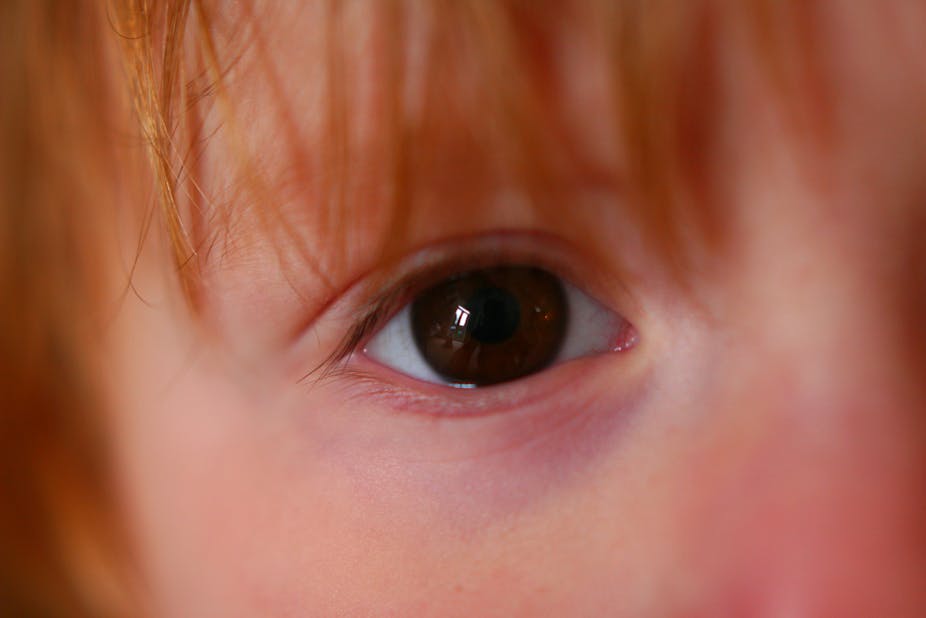The last Federal Government budget announcement revealed funds dedicated to “early intervention” mental health services for youth. But whether this intervention takes place in a timely manner for optimal impact remains unaddressed.
The debate following the budget announcement stirred up strong feelings on both sides. In the process, the parameters of the argument were reduced to the economic benefits of supporting services and intervention at an early stage of mental disorder.
But some are now questioning whether these interventions are based on evidence and raising concerns about prioritising this area in mental health reform.
In the midst of all this, important questions about prevention and intervening even earlier in the course of disorders have been overlooked.
After all, early intervention also means preventative intervention early in life to reduce the risk of developing a mental disorder. It also means treatment in the early years of life and the provision of appropriate services.
So reclaiming the term early intervention has become important to those working with infants and young children.
Our concern is based on a growing body of evidence showing the importance of the early years and the effects of trauma and adversity on neuro-development.
During rapid periods of brain growth, such as in the early years, stress and adversity can have a major impact on the developing brain and set up vulnerability with potentially life-long effects.
Early life
The human brain grows most rapidly in the first three to four years of life. So, looking at brain growth with a developmental focus helps us understand early risk factors for later mental disorder.
Neural pathways needed for healthy psychological functioning are wired up in the early years of life, and crucial processes such as learning, memory, attention, emotional control and understanding of relationships are shaped by early experiences.
The brain develops through care-taking relationships and infants need good quality and consistent interaction to support brain growth.
For instance, infants with secure attachment relationships have better overall developmental trajectories than infants in less optimal relationships.
Adverse early experiences, such as neglect and maltreatment, can affect brain growth and development and stress early in life can result in high levels of hormones such as cortisol, which directly affect brain neurons.
Excessive early stress will also alter the stress response mechanism with long-term changes and the net result of on-going vulnerability to it.
Genesis of mental disorder
Mental disorders have many contributing factors from genetic vulnerability to environmental factors impacting on onset and types of symptoms.
And a disorder presenting in adolescence or youth can have many underlying early risk factors and experiences.
One way to address such disorders is to identify and intervene early to prevent adolescent onset or at least to modify the course of disorder.
There is still a lot to learn about vulnerability to specific conditions but several recent reports point to the link between early adversity and the entire range of later-onset mental disorders.
Early abuse and adversity appear to set up neuro-vulnerability to mental disorder and from this perspective should be important targets for intervention.
Child adversity is a broad term including family dysfunction, attachment disruption, abuse and trauma.
A recent report finds that child adversity related to problems in family dysfunction, attachment and trauma was associated with all types of mental illness.
Psychosis in young adults has also been found to be associated with a history of child sexual abuse.
These findings support the view that child trauma and adversity establishes vulnerability to mental disorder in a non-specific but powerful way.
Disorders appearing in adolescence and young adulthood, including common conditions such as depression and relational problems, will frequently have childhood antecedents.
Despite the clear evidence linking childhood adversity and negative mental health outcomes, there is limited evidence about the prevention of child trauma or interventions to reduce risk in vulnerable families.
In part, this relates to difficulties in conducting research and obtaining government support for programs focused on early childhood where benefit may not be easily demonstrated until later in life.
In general, funders, including the government are more interested in intervention programs where immediate benefits can be shown and costed.
Research in the areas of early attachment, infant mental health and interventions in the prevention of child abuse are, in relation to need, both under funded and under prioritised.
Early intervention approaches
Approaches to early childhood intervention designed to support early development and prevent maltreatment and trauma need to identify infants at risk of attachment disorganisation and relationships where trauma and maltreatment may occur.
Antenatal screening for parenting risk factors and issues, such as depression, are part of government initiatives and may be very important strategies if linked to perinatal and infant mental health services.
Interventions for infants and young children with early signs of developmental problems need to be integrated with family and parenting supports, early child care and links to both child protection and mental health services.
We now know of a range of infant and early childhood interventions and there’s a pressing need for further evaluation of these approaches.
Analysis of cost-benefit ratios and evaluation of potential impact on the burden of mental health problems across the community are complex matters but also important.
Preliminary estimates of effective early intervention programs find returns to society for each dollar invested ranging from $7.80 to $17.70.
Demonstrating to the government that early childhood intervention programs yield results in terms of children’s behaviour, learning and social functioning with later reductions in mental health problems, delinquency and crime is essential.

